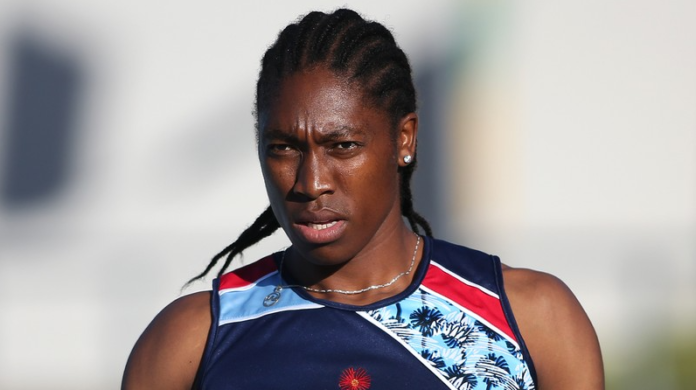Double Olympic champion Caster Semenya has made a plea for financial assistance as she prepares for her upcoming legal fight against regulations that require female athletes with high testosterone levels to take medication.
Semenya, who won a landmark case against Switzerland at the European Court of Human Rights (ECHR) last year, is now facing a new challenge from Swiss authorities supported by World Athletics.
The 33-year-old South African athlete, who has always been legally identified as female despite being classified as having “differences in sexual development (DSD),” has refused to take drugs to reduce her testosterone levels since the introduction of the rules by World Athletics in 2018.
[ Super Eagles Beats Bafana Bafana To Reach AFcon 2023 Finals ]
As a result, she has been barred from competing in her preferred two-lap distance and was forced to make an unsuccessful move up to 5,000m. The ruling by the ECHR last July was largely symbolic, as it did not overturn the World Athletics ruling or allow Semenya to compete without medication.
The case is now set to be heard by the ECHR’s Grand Chamber in May, and Semenya is appealing for financial support to cover the costs of expert witnesses and legal representation.
Semenya, speaking at a press conference in Johannesburg, expressed her need for funds, stating, “We lack funds. We have a lot of experts that come in that we need to pay. Anything that you may contribute makes a huge difference.”
Her legal team, who have been working pro-bono, estimate that the costs for the upcoming ECHR’s Grand Chamber hearings alone will reach approximately $180,000. Throughout Semenya’s decade-long legal battle, expenses have amounted to around R30 million, with fees for experts and lawyers authorized to present the case in various courts being the main expenditures.
World Athletics introduced the DSD regulations to create a level playing field in women’s events. The revised rules now require DSD athletes, like Caster Semenya, to reduce their blood testosterone levels to below 2.5 nanomoles per litre and maintain this level for two years.
Additionally, the principle of restricted events for DSD athletes has been removed, meaning they are barred from all distances unless they meet the testosterone criteria.
Despite the challenges she has faced, Semenya remains determined to fight for the rights of young athletes who may encounter similar obstacles. She stated, “We all know what this case is all about. It is about the differences in women’s bodies. And the main goal is to make sure that we protect these young kids so they can be able to compete.”
Semenya concluded by acknowledging that her career at the top level of athletics may be over, saying, “I don’t want to talk more about sports as I have accomplished everything I’ve ever wanted.” She is now focused on advocating for the rights of young athletes who face similar challenges.
The support and contributions from the public will play a crucial role in Semenya’s ongoing legal battle. By providing financial assistance, individuals can help ensure that she has the necessary resources to fight for her rights and challenge the regulations that have impacted her career and the future of other athletes.
Catch up with the latest news from The Times Post on WhatsApp by following our channel. Click here to join.


